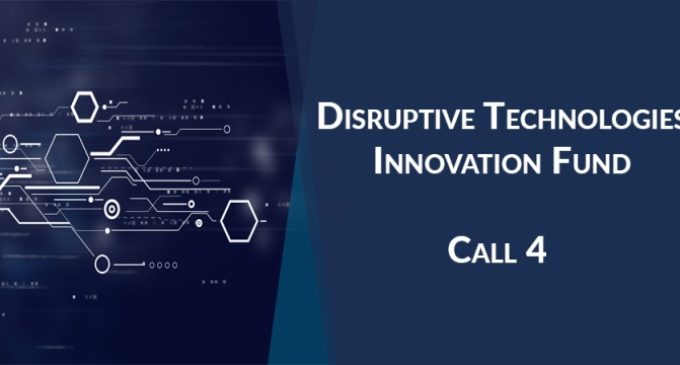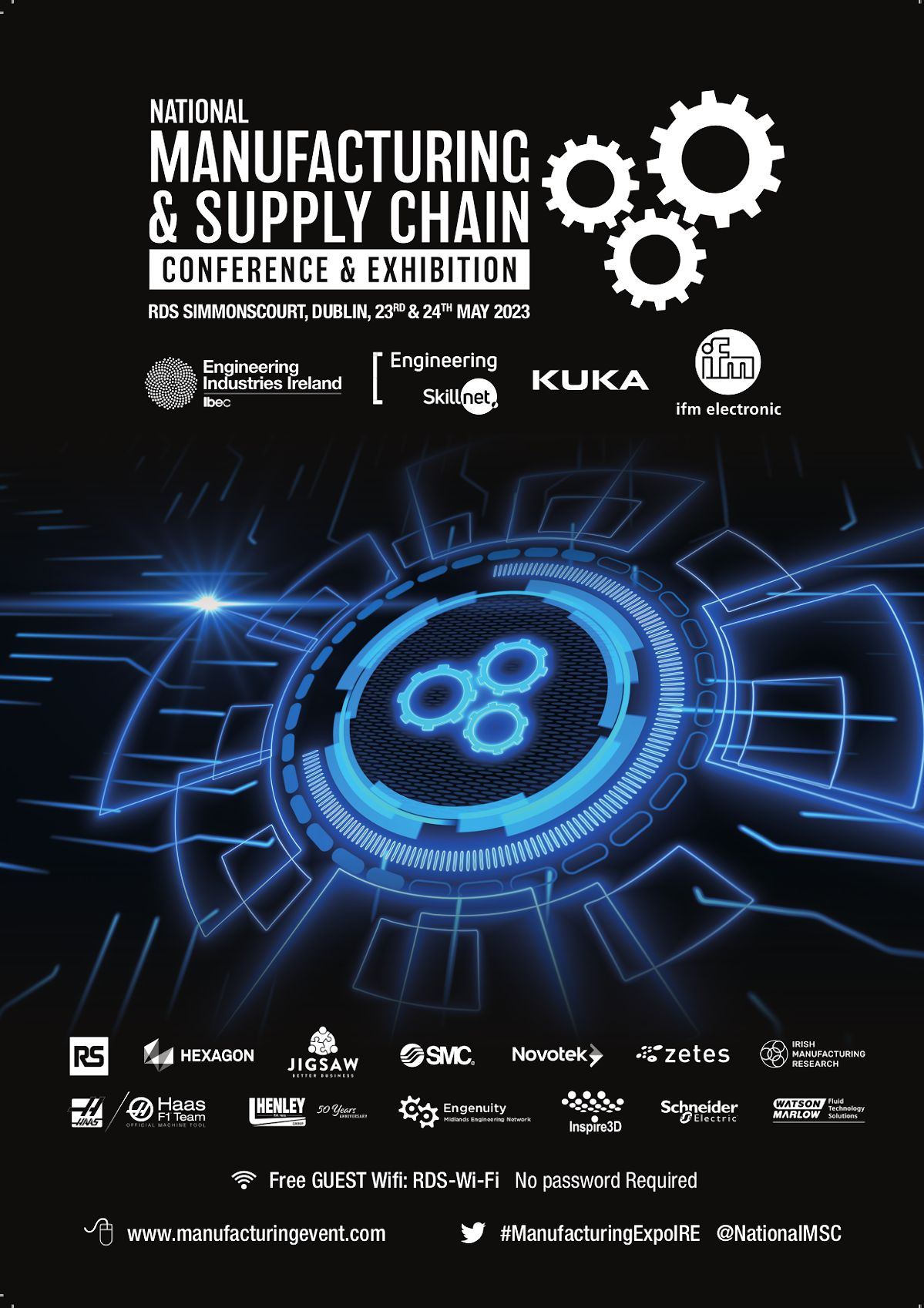Irish Government launches Call 4 of Disruptive Technologies Innovation Fund

The Irish Government has launched call 4 of the Disruptive Technologies Innovation Fund (DTIF). The aim of the fund is to encourage collaborations between industry and the research sector on the development and commercialisation of ground-breaking technologies.
The Government has already allocated €235 million to 72 successful projects approved under the previous three DTIF calls. These projects cover areas such as life sciences, medical devices, ICT, artificial intelligence, manufacturing and environmental sustainability.
To drive enterprise collaborations, each project must have at least one SME and one other enterprise in a consortium of three or more project partners. Collaborations with the Irish research sector are encouraged. All partners must be based in Ireland and be a client of Enterprise Ireland, IDA Ireland or Údarás na Gaeltachta, or an eligible Research Performing Organisation (RPO).
The fund targets industrial research projects of scale and impact. The minimum funding request is €1.5 million for projects of up to three years’ duration, and the enterprise partners must provide matching funding. The fund is competitive and will be assessed by an independent international panel of experts
When launching call 4, Tánaiste and Minister for Enterprise, Trade and Employment, Leo Varadkar TD said: “Throughout the pandemic, we have witnessed the incredible ability and agility of the research community and industry to adapt, to rise to previously unthinkable challenges and to find solutions in an unprecedented situation. We want to encourage and support that ingenuity and inventiveness through the Disruptive Technologies Innovation Fund.
“The companies working on the existing DTIF projects – and there are over 180 so far – are at the leading edge of their sector. They are pushing boundaries. They are driving change. They are devising better and more effective ways of doing business. They are our future, and we want to keep investing in them.
“Climate change is one of the biggest challenges facing this generation and previous DTIF projects have put a big emphasis on sustainability. They include, for example, a refrigerant-free heat pump and a low-cost, high-performance sodium-ion smart battery system using entirely sustainable materials and processes. We need to see more projects with strong, positive, climate impacts like these coming through. To encourage this, all applications must demonstrate their sustainability credentials and indicate how the project will complement the targets in the forthcoming (OR just published, depending on timing) Climate Action Plan.
“This Fund backs the type of innovative thinking we need as we rebuild and recover after the pandemic. I look forward to seeing the next group of ground-breaking projects that come through. If you have an idea that you think would help us meet some of the challenges we face, please come forward, take a chance and the Government will back you.”
Projects must be geared towards commercialisation over a three to seven-year timeframe. They must also align with Ireland’s six Research Priority Areas, namely ICT; Health and Wellbeing; Food; Energy, Climate Action and Sustainability; Manufacturing and Materials; and Business Services and Processes.
Leo Clancy, CEO of Enterprise Ireland, which administers the Disruptive Technologies Innovation Fund, said: “The Irish industrial sector has faced huge challenges over the last few years. The impacts from Brexit and the pandemic have required enterprises to adapt to new ways of doing business and devise unique solutions to ensure that they can survive. It is this spirit of entrepreneurship and innovation that we are looking to harness through the Disruptive Technologies Innovation Fund.
“Innovative SMEs are acknowledged globally as a driving force for introducing disruption to the market and I believe Irish SMEs are world-leading. These great companies are key to the success of the Fund and we want to continue to foster their creative talents and flair for innovation under call 4.
“It is notable and commendable that SMEs are leading in 60 of the 72 DTIF projects funded to date. An important factor in this level of engagement is the ability of progressive companies to identify and develop innovative collaborations with like-minded and complementary partners. I would like to see the Irish-owned enterprise sector take the lead role in the majority of DTIF applications again this year and continue to make a strong contribution to Ireland’s economic recovery, creating our future as a leading location for technology and innovation.”
The application deadline is 15.00 Irish time on 10 February 2022. Prospective applicants can obtain detailed information on the Fund and on the application process through the DTIF Call 4 documentation webpage.
Examples of previously funded projects are outlined below:
TRIDENT – University of Limerick (UL); Analog Devices International Unlimited Company; mSemicon Teoranta; ICERGi Ltd; Glantreo Ltd; TisaLabs Ltd; Smart M Power Company Ltd; Tyndall National Institute are collaborating on a low-cost, high-performance sodium-ion smart battery system using entirely sustainable materials and processes.
INSPIRE – Endowave Ltd; Quadrant Scientific Ltd; and the National University of Ireland, Galway (NUIG) are developing a minimally invasive and intelligent microwave ablation catheter for treatment of lung cancer.
EmboSure – CrannMed Ltd; Innovative Catheter Solutions Ltd; Creganna Unlimited Company; and Technological University Dublin (TUD) are developing a novel and disruptive treatment for chronic knee osteoarthritis, which delivers dramatic pain and mobility benefits to patients.
E-Crop – National University of Ireland, Dublin (UCD); e-Seed Crop Technology Solutions Ltd; SeqBiome Ltd; Lárionad Acmhainní Nádúrtha CTR; and Origin Enterprises Public Ltd Company will develop innovative agri-technologies to provide farmers and agri advisory industries with the tools needed to monitor and improve crop health.
The AiPATH-CAN project sees Deciphex Ltd; OncoAssure Ltd; and the National University of Ireland, Dublin (UCD) focused on harnessing the power of artificial intelligence to develop advanced diagnostic tools to identify those breast and prostate cancer patients with early-stage disease that can be spared aggressive treatment.
PerPETual – Athlone Institute of Technology (AIT); AvonCourt Packaging Ltd; Novel Plast Teoranta; and the National University of Ireland, Cork (UCC) are working on a project to transform the plastics industry by drastically reducing the amount of fresh petroleum extracted virgin material used and positioning PET recyclate as a valuable, perpetually reusable resource.
A-EYE Control Tower – Evercam Ltd; GagaMuller Technology Ltd; and Technological University Dublin (TUD) are working on a control tower for developers and contractors operating large and complex construction sites that provides full visibility of the project and enables the most natural, visual communication.
Nextgen Heat – Exergyn Ltd; Dublin City University; and Fort Wayne Metals Ireland Ltd are collaborating on a refrigerant-free heat pump enabling transition to a low-carbon economy, providing an affordable, sustainable way to heat buildings, while decarbonising our energy system.
TRANSPIRE – Corlytics Ltd; CeADAR UCD; and Singlepoint Solutions Ltd are collaborating on a project that combines human expertise with artificial intelligence to demystify laws and regulations making it easier to do business while protecting consumers.
S-BREW – NVP Energy Ltd; Ashleigh Environmental Ltd; and the National University of Ireland, Galway (NUIG) are collaborating on a project to convert wastewater from the agri-food industry to clean water, using a unique, patented low temperature anaerobic digestion technology to break down organic by-products to create renewable energy in the form of biogas, while minimising waste.
Nex – Davra Networks, Danalto, Intel, and DCU are collaborating on a project to provide a reliable, verifiable and secure end-to-end remote patient monitoring system which has rich data, affordable and reliable network connectivity, machine learning and data integrity at its core.
E-BAMBI – This collaboration by the SEAM Research Centre, Schivo Medical, Graph Treatments Ltd, Stryker, and DIT will develop additively manufactured (i.e., 3-D printing), biocompatible, metallic components for the medical device industry.




















